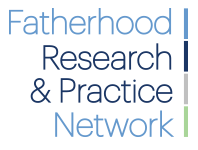Money and Technical Assistance for Evaluating Fatherhood Programs on Its Way
3 min read
Date Published: 05/29/2014
Last Updated: 05/29/2014
National Fatherhood Initiative Blog / Latest Articles
3 min read
Funding and technical assistance (TA) will soon be available from the federal government to help your organization rigorously evaluate your fatherhood program.
 While competition to secure funding from this source is likely to be fierce, technical assistance should be readily available to help your organization evaluate your program with existing funds and better position your program for funding from public and private sources.
While competition to secure funding from this source is likely to be fierce, technical assistance should be readily available to help your organization evaluate your program with existing funds and better position your program for funding from public and private sources.
For the past several months, I have represented National Fatherhood Initiative (NFI) on the steering committee of the Fatherhood Research and Practice Network (FRPN), a collaboration of some 50 leading researchers and practitioners dedicated to increasing father involvement in the lives of children. My primary role is to provide a voice for the thousands of practitioners who interact with fathers and families on a daily and weekly basis. I will use my research and social science knowledge, my own and NFI's years of experience building the capacity of organizations to effectively serve fathers, and knowledge of the challenges faced by practitioners to ensure that the FRPN is a valuable resource.
I'm excited about the potential of the FRPN to advance research and practice, especially practice because it is, as the saying goes, "where the rubber meets the road" in connecting fathers with their children. The objectives of the FRPN are to:
To accomplish these objectives, the FRPN focuses on three areas: responsible fatherhood, economic security, and co-parenting/healthy relationships. The FRPN plans to fund projects that support rigorous evaluations being conducted on fatherhood programs and services within these areas. The collaborative has already produced reviews of the state of evaluations in each of these areas. (Click here to download the free reports.)
The FRPN will provide approximately $1.2 million in funding that it will release in a series of Requests for Proposals (RFPs) over a three-year period. It will fund evaluations of programs that aim to increase paternal engagement and parenting skills; improve fathers’ ability to provide economic support; and increase parenting time, father-child contact, positive co-parenting and healthy relationships. The first RFP should be released toward the end of the summer with funded projects to begin in the fall.
If you are interested in acquiring funds to evaluate your program, I encourage you to start planning now. Here are a few tips to get started:
The collaborative will also build research capacity by providing a variety of TA including one-on-one consulting services, mentoring and peer support as well as web-based communication platforms and resources. An announcement of FRPN consulting services and mentoring/peer support opportunities will be issued in late 2014/early 2015.
To keep abreast of the latest developments and schedules for the RFPs and TA, visit the website of the FRPN. If you decide to include NFI's programs in your proposal, visit our website for descriptions of our programs and evaluations of them. Don't hesitate to contact us if you need information on our programs that you can't find otherwise.
Do you have data to prove your fatherhood program is effective? Have you evaluated your fatherhood program?
Date Published: 05/29/2014
Last Updated: 05/29/2014
Download this free guide for a proven 7-step roadmap—from making the case and securing funding for your program, to launching and measuring real results!


Train Your Staff
Fatherhood Programs
Fatherhood Data
© 2026 National Fatherhood Initiative®. All rights reserved.